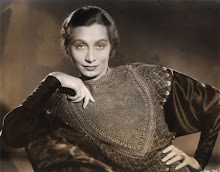.jpg)
Remembering Tony Curtis and the Loew’s Paradise
I never thought much about Tony Curtis during my formative years, although we were both denizens of the Bronx, he preceding me by a decade. He was of Hungarian Jewish background, brought up in the Bronx during the Great Depression on the eve of World War Two. The borough was about fifty percent Jewish at that time and although I was a Gentile, a young boy takes on many of the trappings of his surroundings -- I have always been comfortable in that milieu. And I have always had a fond appreciation of those who came out of that culture -- having myself been so enveloped by it. So, perhaps, there was a subconscious link. Shared experiences.
Tony Curtis has told us about going to the Loew’s Paradise, a movie mecca in the Bronx, long ensconced on the Grand Concourse – our major boulevard. It was our Broadway. The Paradise, built in 1929, was the 23rd largest movie theatre ever to be built in the United States and had a seating capacity of close to four thousand. Perhaps our paths crossed there once or twice as this was a palace for the people and the young attended the palace rituals with some regularity.
After the war, Tony Curtis moved from the seats of the Loew's Paradise to the screen -- initially in a famous moment, dancing with Yvonne De Carlo in Robert Siodmak’s Criss Cross. It is a heated scene which introduces us to Yvonne De Carlo (Anna) on the point of combustion, dancing with the handsome Tony Curtis.
He moves quickly in and out of the frame as we listen to the pulsating music of Esy Morales. It was De Carlo’s showcase, but I am sure the girls noticed Tony Curtis. And, I suspect, I might have seen that screen debut more often than most, because my wife and I are great admirers of Robert Siodmak, particularly his Criss Cross.
Then came Trapeze, Sweet Smell of Success, the Wilder film, The Boston Strangler, and sundry others. But this is not the best venue for a Curtis obituary. Yet, as I trawled the Internet earlier today visiting what are usually good sources for obituaries (e.g., The Guardian, The London Telegraph) those found were rather lackluster.
But I will continue to seek and perhaps find. I would like to see two of my favorite Davids weigh in: Mamet and Thomson. Mamet has stated in his Bambi meets Godzilla that Tony Curtis was a better film actor than Laurence Olivier. And the distinguished playwright and director makes a good case. My appreciation of Tony Curtis grew over the years as I saw his films again and again, saw and read interviews with him, and listened and read carefully when those whom I consider knowledgeable spoke and wrote of him. I have come to respect Tony Curtis and appreciate his work.
So farewell to a fellow Bronxite on a bleak rainy day about one hundred miles from the Bronx and about seventy years from a brief period when we were both there at the same time. And as films and actors throw shadows in the most unexpected places, this morning I thought about the old Bronx, the sound of Klezmer, a landmark theatre on the Grand Concourse and of all the boys met and passed on city streets -- any of whom might have been a handsome kid from those streets who got to dance with Yvonne De Carlo – and then some.
Photo from The Tablet: A New Read on Jewish Life





+cropped.jpg)


+New+format+Master+900+by+685+with+text.jpg)










